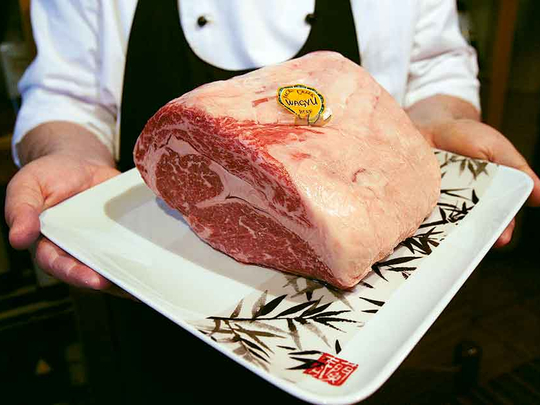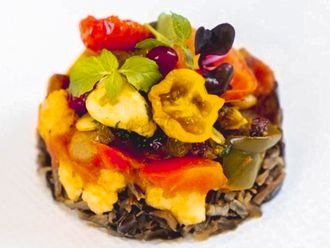
Falsely indicating the origin conflicts with the Unfair Competition Prevention Law and other regulations in Japan, but these are not applicable overseas.
To address the situation, the Agriculture, Forestry and Fisheries Ministry plans to encourage relevant organisations to register products under the Geographical Indication (GI) protection system, under which food and other products produced in particular areas are registered as intellectual property, while strengthening surveillance for fake products in cooperation with the countries concerned.
“We hope to increase Matsusaka-ushi beef exports, but there are so many fake products,” says an official at the Matsusaka municipal government in Mie Prefecture. The municipal government serves as the secretariat for Matsusaka-ushi beef producers’ organisations and other entities.
The official says, “It is necessary to conduct a DNA analysis on the beef to determine if it is fake. We don’t have the time or money to do that.”
While fake Kobe beef products have also been found, an official at the Kobe Beef Marketing and Distribution Promotion Association, comprised of Kobe Beef producers and distributors, says, “It is impossible for a producer’s organisation alone to tackle such a problem.”
The agriculture ministry established the Agriculture, Forestry, and Fisheries Intellectual Property Protection Consortium to monitor fake products in Asia.
According to a 2015 survey it conducted in six countries and territories including China, Indonesia and Hong Kong, counterfeit products were found in 31 cases. The ministry says it has mainly found counterfeit Wagyu products this fiscal year.
Trademark registration is used for preventing fake luxury food ingredients from being widely distributed. However, there are some cases overseas in which trademark registration was not approved due to invalid reasons.
Behind the spread of fake Wagyu products lies its high popularity overseas as a luxury food item. In 2016, the export value of Wagyu was 13.6 billion yen (Dh440.86 million), up 24 per cent from the previous year, and its export volume rose 18 per cent year-on-year to 1,909 tons. Both figures are record highs, with the export volume more than 20 times higher than a decade ago.
One-third of exports are destined for Hong Kong, followed by Cambodia, the US, Singapore and Thailand. Under the Geographical Indication (GI) protection system, the central government and other authorities evaluate and give guarantees on the quality of agricultural, forestry and fisheries products and processed foods that are produced in specific areas. There are 24 products with high brand value that are currently registered as GIs, including Kobe Beef, Tajima Gyu/Tajima Beef, Yubari Melon and Shimonoseki Fuku (tiger pufferfish). Applications for the system have currently been made for more than 60 products.
















